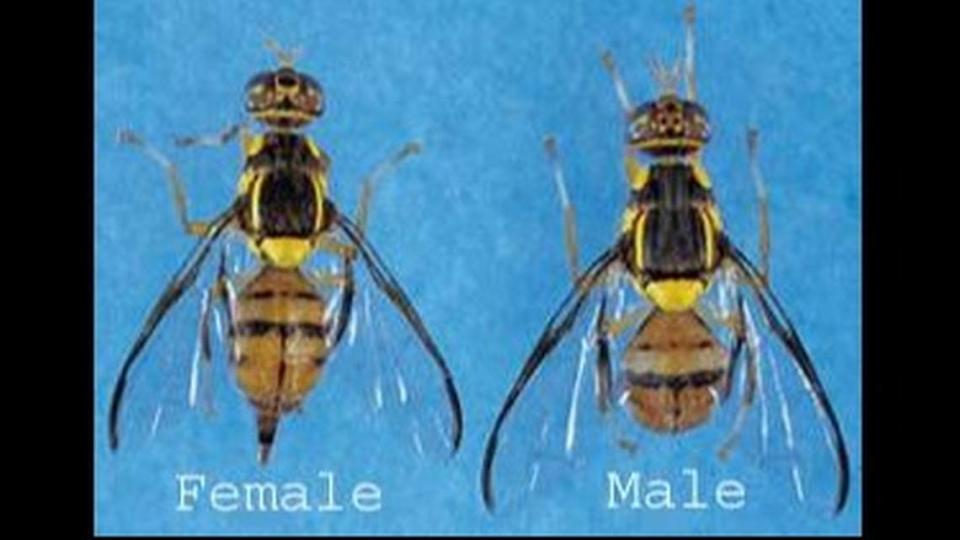Trees at more than 2,000 homes in a California city will be stripped of their fruit, according to a state agency.
The “large-scale fruit removal,” which is slated to begin in late January, is set for a designated area in Redlands in San Bernardino County, the California Department of Food and Agriculture said in a Jan. 18 news release.
The reason?
An “invasive” insect, according to the agency.
“If left unchecked, the Oriental fruit fly could become permanently established and cause billions of dollars worth of losses annually, which would significantly impact California’s food supply,” the agency said.
By stripping the fruit trees, the agency said it hopes to “break the lifecycle of the invasive fly.”
The fly “lays eggs in fruit that develop into larvae,” which threatens citrus and more than 230 crops, like “nuts, vegetables and berries,” the agency said.

The Oriental fruit fly, which is “larger than a housefly” and measures about 8 millimeters, or about 0.3 inches, in length, was first discovered in the state in 1960 and “has been introduced every year since 1966,” according to the agency.
“Although infestations have occasionally been found in California, these have all been successfully eradicated,” the agency said.
The agency said if an Oriental fruit fly infestation is not eliminated, it could cost between $44 and $176 million “in crop losses, additional pesticide use, and quarantine requirements.”
The removal will continue into late February, according to the agency. Residents will get a notice two days prior to removal, which is mandatory.
The agency said residents should not remove fruit on their own.
Should fruit fall from trees, the agency said residents should “double-bag it and place it in a trash bin” and not in “green waste bins or other organic refuse designations.”
“This approach significantly reduces the risk of spread of Oriental fruit flies, larvae or maggots,” the agency said.
Redlands is about 60 miles east of Los Angeles.
California has an exotic fruit fly problem. Gavin Newsom proposes spending $22 million to fix it
More destructive Japanese beetles found in Tri-Cities. WA state to spray some home lawns
WA proposes yard debris quarantine for some of Tri-Cities after destructive beetles found


